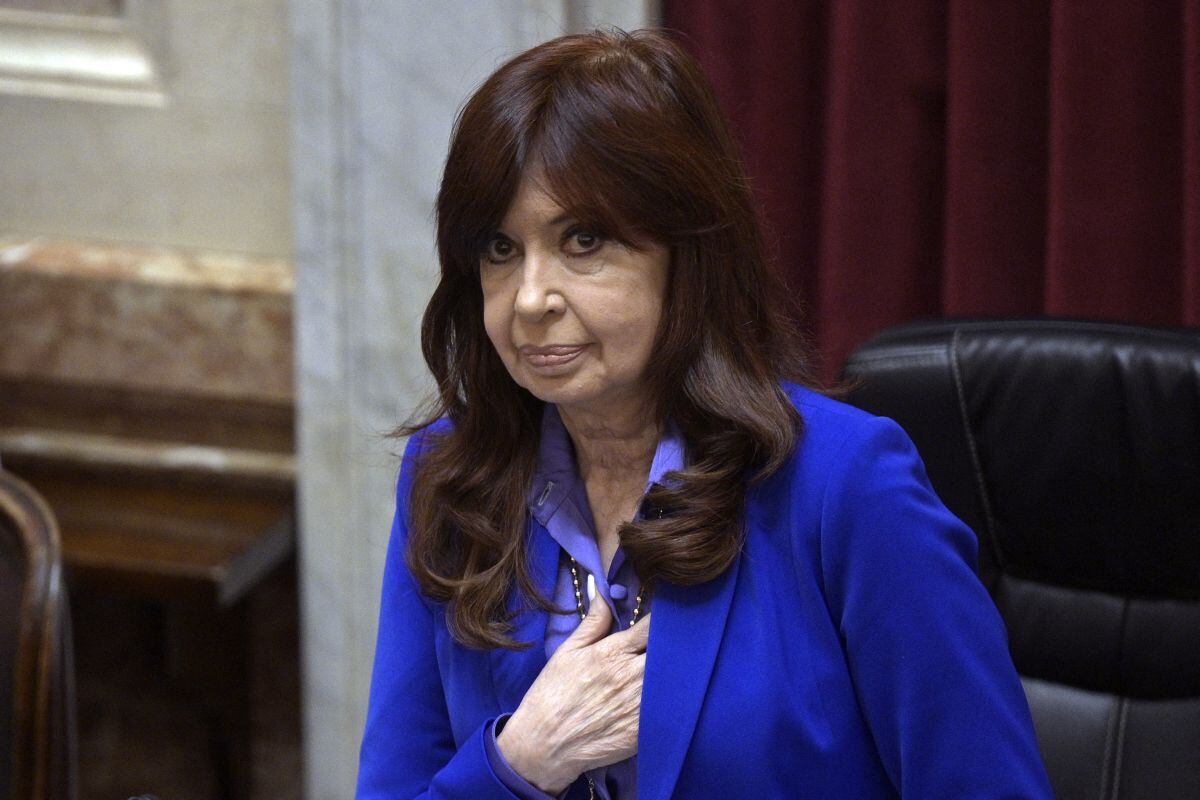
The Argentine Vice President, Cristina Fernandezsaid this Friday that Argentina he is going to have to “review” the conditions of the agreement with the International Monetary Fund (IMF) for a debt of 45 billion dollars that it signed a year ago.
“We are going to need the political leaders in Argentina to be united together in the face of our main challenge, which is going to be to review that agreement. Not to not pay, but to let us grow”, affirmed Cristina Fernández when presenting at the National University of Río Negro (south) after receiving an honorary doctorate.
After indicating that the indebtedness with the organization initiated during the government of Mauricio Macri (2015-2019) was a “catastrophe”, the former president (2007-2015) clarified that she does not have a “dogmatic question”, “nor ideological” with the IMF.
And that it is not about not wanting to pay: “If they gave you $45 billion, you’re going to have to pay it back.”
But the vice president insisted that they are going to “having to review the conditions in which the agreement was signed” with the IMF, detailing the maturity profile up to 2034.
Cristina Fernández argued that Argentina has “than having the dollars for imports of all kinds and for technological innovation” and that if not, the country can have 20 hydrocarbon deposits like Vaca Muerta or 80 thousand tons of lithium, but it “The dollars will continue to be lacking.”
The extended facilities program agreed on March 3, 2022 by the Government of Alberto Fernández and the IMF allowed Argentina to reschedule the heavy maturities of the debt contracted with the agency in 2018.
The agreement, which avoided a colossal cessation of payments and the disastrous consequences that a ‘default‘, established ten quarterly reviews, of which Argentina has already passed three, with a fourth underway these days.
For this year the goals are to lower the primary deficit to 1.9% of GDP, reduce assistance to the Treasury to 0.6% of GDP and collect an additional 4.8 billion dollars, some more than challenging objectives in a year of presidential elections in which it will be difficult make adjustments and in a scenario of severe drought that hits agriculture and is already having an impact on foreign exchange earnings and fiscal accounts.
Source: EFE
Source: Gestion
Ricardo is a renowned author and journalist, known for his exceptional writing on top-news stories. He currently works as a writer at the 247 News Agency, where he is known for his ability to deliver breaking news and insightful analysis on the most pressing issues of the day.












